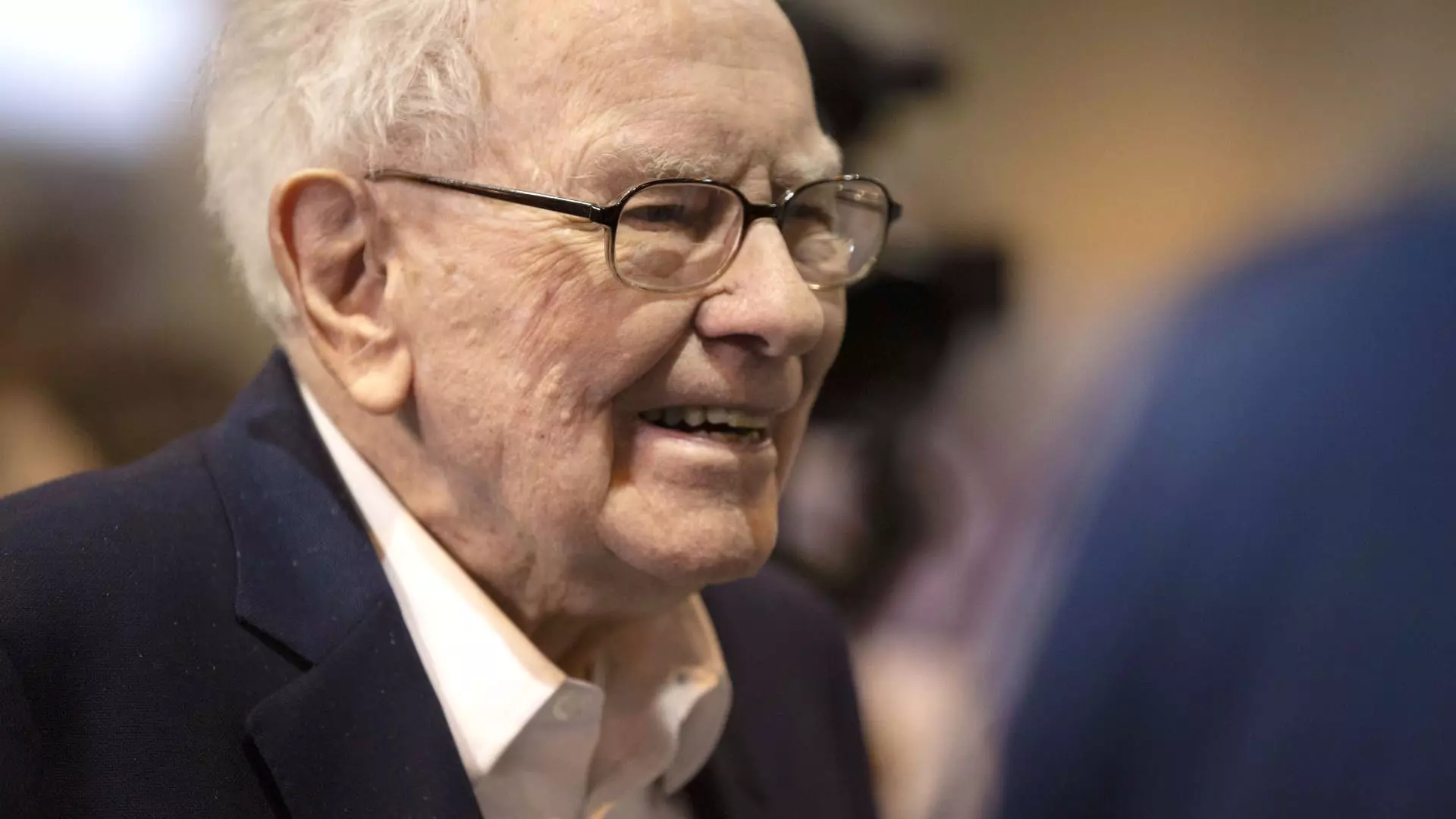Warren Buffett, legendary investor and CEO of Berkshire Hathaway, has stirred significant intrigue among market watchers with his recent financial maneuvers. At 94 years old, the billionaire known for his keen eye for value investments appears to be adopting a surprisingly conservative stance, which has led to extensive speculation and analysis. The latest annual letter from Buffett has left many shareholders and analysts pondering the rationale behind his significant cash accumulation and stock sell-offs, a concept that seems contrary to his historical investment philosophy that typically values equity ownership above all.
One of the most striking features of Buffett’s recent approach is the accumulation of cash. As of the end of last year, Berkshire Hathaway’s cash reserves reached an astonishing $334 billion. This represents a shift in strategy, particularly in light of a rising stock market and increasing investor optimism, which begs the question: why the cautious stance? Buffett’s assertion that the “great majority” of shareholder funds remain in equities despite his significant cash pile seems somewhat paradoxical during a time when many of his peers are aggressively investing.
Critics and shareholders have expressed concern over Buffett’s apparent reluctance to capitalize on market opportunities. The iconic investor has sold over $134 billion worth of stocks, primarily reducing positions in major holdings like Apple and Bank of America. This prolonged period of net selling—now extending into nine consecutive quarters—has raised eyebrows, provoking a reevaluation of Buffett’s long-standing philosophy which champions continual investment in productive assets.
The economic environment has also played a pivotal role in shaping Buffett’s decisions. With interest rates currently forecasted to decline from their recent peaks, some industry insiders anticipated a rebound in Buffett’s spending. However, Buffett’s repeated frustrations regarding high valuations and a lack of compelling investment opportunities suggest that he remains wary. His annual letter indicated a necessity for patience, iterating that market factors would ultimately determine when and where Berkshire would deploy capital.
As the markets have surged, particularly with the S&P 500 achieving double-digit gains, Buffett has refrained from engaging aggressively in equity purchases. Instead, he seems to be playing a waiting game, hinting at a possible recalibration of investment strategies that may focus on quality over quantity in terms of equity positions. Buffett’s acknowledgment that “often, nothing looks compelling” indicates a cautious optimism, where he prioritizes thorough analysis over mere reaction to market trends.
A critical factor underpinning Buffett’s recent actions could be attributed to succession planning within Berkshire Hathaway. The endorsement of Greg Abel as a deserving successor points to the possibility that Buffett is meticulously refining Berkshire’s investment landscape in preparation for future leadership. Spartan selling may not solely be a reflection of current market conditions but rather an intentional strategy to ensure that Abel inherits a balanced and aptly positioned portfolio.
The comparison of Abel to the late Charlie Munger in the annual letter underscores Buffett’s confidence in the successor’s capabilities. This intentional cultivation of Abel’s role highlights a transitional phase, where Buffett is setting the stage for a smooth succession in investment decision-making. Investors might interpret the current cash holdings and equity sell-offs as preparatory steps, aimed at providing Abel the flexibility and capital needed to pursue opportunities as they arise.
Buffett’s cryptic mentions of potential future investments, particularly in the five Japanese trading houses he has been accumulating for nearly six years, introduce intriguing prospects. Is this a nod towards Buffett’s long-term vision and belief in diversified global investments? He suggests that Berkshire may increase its holdings in these entities, hinting at a strategic inclination towards targeted sectors rather than indiscriminate equity investments. This could suggest a nuanced approach to investments, one that balances patient capital growth with opportunities in untapped international markets.
Warren Buffett’s recent moves invite a deeper analysis of his long-term investment philosophy and the potential factors influencing his current strategies. As he navigates the dual pressures of market volatility and his impending succession, the decisions made by the Oracle of Omaha will be scrutinized closely by investors looking for indications of his enduring legacy. Whether this conservative posture will ultimately yield fruitful results remains to be seen; however, it undoubtedly encapsulates a moment of profound reflection in the storied career of one of the world’s greatest investors.

